This article is my contribution to a request from the Institute of Internal Communication (IoIC) for IC pros to document the most important thing they have learned about IC. See the foot of the page for information about how you can get involved.
The most important thing I’ve learned about internal communication is: Who you know is as important as what you know.
I’m a strong advocate for raising professional standards in internal communication – part of the ‘what you know’ side to this equation, but I am going to focus on the ‘who’ for the purpose of this article.
There have been many moments in my career to date that I’m proud of. But underpinning everything I do is my network and contacts, and I’m going to explain why.
I began working in IC in 2003 straight from being a journalist. This meant I was used to building contacts, because without them I wouldn’t have been able to do my job, blank newspaper pages don’t make for a good read!
The advice and guidance shared by my team in my first internal comms role demonstrated I had made a smart move. Their enthusiasm not only for the subject matter but profession made a lasting impression on me.
On my first day, my boss and I went on the perfunctory walk around Head Office to introduce me to my business partners. I remember being impressed that she knew everyone. Not only the CEO and Executive team, but the security guards and restaurant workers too.
I regularly spent time in one of our German offices as my role covered Europe and South America, and on my first visit my boss accompanied me. I observed that the same rules applied – she knew everyone there too, both in the office and factories, either by name or to nod to.
I quickly realised the importance and value of having a strong network within the business. We talk all the time in IC about having ‘eyes and ears’ groups of employees to know the true picture of what is happening in your company.
Bursting out of the comms bubble
I think this is vital for IC pros, particularly when communicating bad news. I’ve found it essential to have a group of employees I trust and can have confidential conversations with. It’s very easy to get caught up in the ‘comms bubble’ and the dose of reality people around you give has paid dividends in my career.
 Don’t just choose your friends – ensure you know people who challenge the status quo and will push your thinking, at every level of your company. Being able to communicate well yourself is crucial in order to be effective in your job. A smile doesn’t hurt anyone!
Don’t just choose your friends – ensure you know people who challenge the status quo and will push your thinking, at every level of your company. Being able to communicate well yourself is crucial in order to be effective in your job. A smile doesn’t hurt anyone!
I’ve found my working life enriched by the people I have met; it makes life a lot sweeter and enjoyable and I’ve learned a lot from them. I’ve extended that principle over the years and ensured I’ve got to know external comms colleagues, shareholders, stakeholders and union officials too.
What struck me on my first day is still relevant today – it is crucial to understand and know the people in your organisation. I have applied the same principle outside of my workplace and value the people I know and connect with. With ever-decreasing teams, knowing you have people you can ask for advice, bounce ideas off and talk about all things internal communication is priceless.
Now I have my own IC business, it’s a pleasure and privilege to work alongside comms teams to help them develop themselves personally and professionally. One of the first questions I ask is about their internal connections.
Sharing knowledge
Around 80 IC pros have written guest articles for my blog because I’m keen to encourage people to build their networks and share knowledge, particularly in-house to in-house. I certainly learn from peers, and feedback from my readers demonstrates this works well for them too. It’s that dynamic combination of who and what you know.
When working in-house in the internal comms team at Visa in 2006 I asked my boss’ boss, Jeremy Reynolds, to mentor me. He has been a guiding force in my career, particularly through his searing honesty and encouragement. He’s certainly been a fantastic person to know.
I am in regular contact with many people I’ve worked with over the years and recognise the importance of having a strong network, both of people in and outside of comms – avoiding the bubble I mentioned earlier.
 Last year I set up The IC Crowd network with my friends and fellow comms pros Jenni Wheller and Dana Leeson (pictured). Transforming your contacts from names on LinkedIn and Twitter to meeting face-to-face (such as the big yak unconference we ran recently with 130 IC pros) is incredibly rewarding.
Last year I set up The IC Crowd network with my friends and fellow comms pros Jenni Wheller and Dana Leeson (pictured). Transforming your contacts from names on LinkedIn and Twitter to meeting face-to-face (such as the big yak unconference we ran recently with 130 IC pros) is incredibly rewarding.
There are a lot of smart people working in internal communication and I’m proud to be in contact with a lot of them.
Post author: Rachel Miller
Want to connect? Do say hello below, Tweet me @AllthingsIC or find me on LinkedIn and let me know your thoughts on this article. I’ve listed upcoming opportunities for you to meet with other IC pros below.
Have your say
What’s the most important thing you’ve learned about internal communication? Over the next few months the Institute of Internal Communication (IoIC) will be publishing articles from IC professionals featuring their most important thing – keep an eye on their LinkedIn group to read through them, check out the hashtag #ioicgems on Twitter and take part too. You can see some from today below:
#ioicgems never forget the importance of having stakeholders on your level. Senior stakeholder management is the easy part.
— Jade Eva (@MiniComms) July 3, 2013
IC is an enabler for business success, not an end in itself. #ioicgems
— Mark Shanahan (@LeapfrogMark) July 3, 2013
Great IC can transform the relationship between staff and the organisation they work for by facilitating two-way conversations #ioicgems
— Daniel Arda (@DanielArda) July 3, 2013
#ioicgems if you don't understand who you're talking to nothing will get through! learn, build rapport and tailor solutions to engage
— Selina Thompson (@selinathompson) July 3, 2013
#ioicgems – the most important thing I've learned about IC is the importance of great networks, both within your organisation and externally
— Sarah Hodges (@hodgessarah) July 3, 2013
#ioicgems effective communication needs to be a two-way conversation. Gone are the days when 'if you tell, they will listen'… @ioicnews
— Dawn Robinson (@DawniesKitchen) July 3, 2013
Further reading
My blog: How can IC pros be sociable? – overview of event I presented at last week for IC pros in Milton Keynes, UK (pictured top)
My blog: Guest archive featuring articles by 80 internal communication professionals
Opportunities to meet other IC pros:
Comms calendar from @theICcrowd
Measurement summit from CIPR Inside – early bird tickets now available
I’m leading a Social Summer event on 18 July
CIPR Inside internal communication conference in September at Kia Oval, London











Internal Communications cannot be truly relevant and effective without a clear purpose, or strategy, that outlines specific strategic and business objectives. Too often many internal programs are still highly tactical and difuse, focusing on the how (tools and vehicles) and the what (content) rather than asking if and why an organization should communicate.